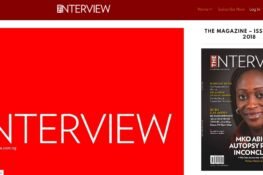President MuhammaduBuhari presented the 2016 budget of N6trillion to the National Assembly on December 22, tagged the ‘Budget of Change’. The late composition of the cabinet affected the submission of the Medium Term Expenditure framework 2016-2018 and the 2016 budget. With the global oil environment and Iran’s coming out of sanctions and ready to pump oil into the world market, coupled with Nigeria’s mono-economy, the outlook for 2016 remains well below average.
The foreign exchange challenge is still very dire and the Central Bank of Nigeria recently directed banks to bar customers from withdrawing cash from automated teller machines (ATMs) in Africa using their Naira MasterCard, with limited point of sales (POS) terminal and online transactions. The monthly limit on a Naira MasterCard was reduced to $1000 and the daily limit to $100. This has caused significant hardship for customers travelling abroad and those who shop online. The security situation in the northeast of the country is still troubling. Even with the military onslaught on the Boko Haram group, which has led to the taking back of some of the local government areas hitherto under the control of the terrorists, the situation is still very unpredictable. Tensions in the East and the Niger Delta area with the agitation for a sovereign Biafra state have resurfaced, following perceived marginalisation in the present government’s recent appointments.
Key points of the 2016 Budget
The total budget volume is N6.08trillion, of which N1.8trillion will be spent on capital expenditure – three times more than in 2015 – to make Africa’s biggest economy more “competitive”. Nigeria expects its budget deficit to double to N2.2trillion in 2016, as the government plans to revive a flagging economy by tripling capital expenditure. Africa’s biggest economy will borrow as much as N900billion abroad to fund the deficit, which is equal to 2.16 per cent of gross domestic product (GDP). Some N984billion will be raised through domestic borrowing. In 2016, revenue will be driven essentially by non-oil proceeds, while oil related revenue is expected to contribute N820billion, non-oil revenue, comprising Company Income Tax (CIT), Value Added Tax (VAT), Customs and Excise Duties and Federation Account levies, will contribute N1.45trillion, almost double of what is expected to come in from oil. This might mean that VAT may be increased, as is being canvassed in some quarters, from its present five per cent to maybe 10 per cent. VAT is 15 per cent in Kenya and 14 per cent in South Africa, so we think it is the right thing to do to make us competitive.
1. Tax reduction for small businesses:
The government has promised, through the budget, to encourage small businesses by a reduction in tax for businesses, as well as subsidising funding for priority sectors such as agriculture and solid minerals. The proposal that the job creation initiative will be driven by the private sector is very encouraging.
2. Large-scale infrastructural development:
Nigeria currently faces a huge infrastructural deficit, which negatively affects businesses and more importantly, the all-round wellbeing of citizens. This is one challenge Nigeria may begin to address, if the 2016 budget is properly implemented. The budget votes N1.8trillion for capital expenditure, representing 30 per cent of the total budget of N6.08trillion. There will be increased capital expenditure in critical sectors such as Works, Power and Housing – N443.4billion; Transport – N202.0billion; Special Intervention Programmes – N200.0billion.
3. Improved service delivery and security:
Projecting that proper budget implementation is achieved, it is expected that Nigerians will experience improved service delivery and security, as the government plans to devote a significant portion of recurrent expenditure to institutions that provide critical services like education, N369.6billion; defence, N294.5billion; health, N221.7billion, and N145.3billion to the Ministry of Interior. This will ensure our teachers, armed forces personnel, doctors, nurses, policemen, fire fighters and many more critical service providers are paid competitively and on time.
Where should I look for opportunities?
Transportation Infrastructure:
• Land Transportation:
The government will be looking for public-private participation in the different road projects ongoing in the country, due to other, competing needs for the lean resources of the federal and state governments. Opportunities will abound in the Onitsha-Enugu-Port Harcourt, Benin-Ore-Shagamu and Apapa-Oshodi roads projects, and the mighty, second Niger Bridge.
• Railways:
The eastern line linking Port Harcourt to Maiduguri will be reviewed by the new government and from my investigations, private companies will be invited to participate in its completion. The fact that this link will open up trade in oil and other haulage business will make it very attractive and profitable for the participating investors.
• Aviation:
The plan of the government to float a national carrier will automatically open up the aviation industry to foreign and local investors to scramble for. There will also be the need to concession the ongoing terminals being built in Abuja, Lagos and Kano when completed. Opportunities will also abound in automated car parking business at our airports.
Power:
As is well known, Nigeria has embarked on one of the most comprehensive and transparent power privatisation and liberalisation programmes worldwide, with the privatisation of all its power generation and distribution companies. And with the new minister’s drive to seek a progressive tariff in the sector, investors will be willing to invest more, because of the rate of return on investment.
Services Sector:
As our GDP re-basing results showed, the services industries comprise about 51 per cent of our GDP and employ many Nigerians. We are therefore envisaging great opportunities in the services sector, such as ICT and the Creative Industries.
Housing and construction:
The housing and construction sector is a critical sector in any economy. When the housing sector booms, it creates jobs for architects and masons, for electricians and plumbers, for interior decorators and so on. Listening to the new Minister for Power, Works and Housing, it is clear that he has a road map that will encourage private participation in housing through mortgages.
Agriculture: Our agriculture is experiencing an ‘attitude revolution’. Young people are now learning to think of agriculture as a business for entrepreneurs and this is making a difference in value addition in our agricultural sector. The fact that government has said it will continue its investment in the agricultural value chain makes the sector a ready market for a bountiful harvest for investors.
Outstanding Challenges
In 2016, addressing security issues will remain a key challenge. Insurgency in the northeast and other parts of the country has negative implications for investment. It also may hamper the fight against poverty as well as increase crime. The increased number of both internally displaced persons and refugees in neighbouring Cameroon and Niger has created a grave humanitarian situation. However, the current regional coalition force against Boko Haram appears to be making headway in subduing the terrorists. The government should also move quickly to pacify the Shiite Muslims in the northwest, so that the issue does not escalate out of control. Overcoming geographical and socio-economic barriers is central to achieving inclusive growth and sustainable development. Addressing rural-urban differences to ensure more balanced development through job creation and societal transformation is critical to Nigeria’s future. This will need to be done within all the six geopolitical zones, in addition to addressing inequalities across these zones. Though there have been several policy initiatives aimed at regional development in Nigeria, limited success has been achieved in addressing the fundamental causes of the imbalance.






